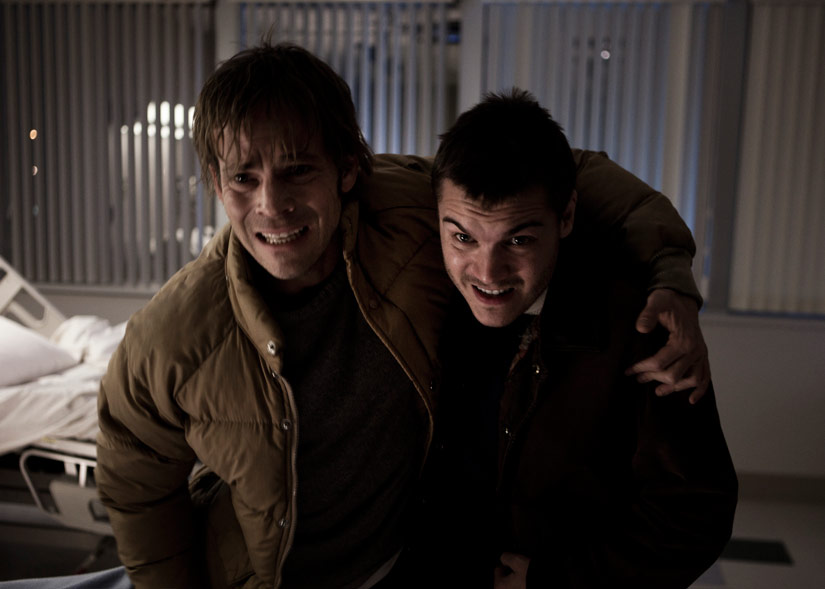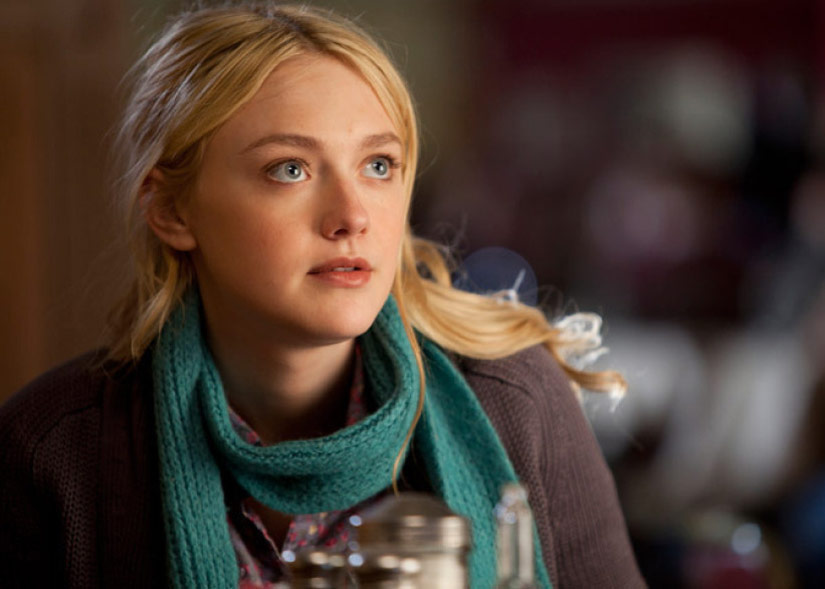What do you do when the world is constantly working against you? Do you simply give up and succumb to the inevitable defeat, or do you keep trudging along, hoping and praying for a break? Will it be too late if/when that break ever happens? Alan and Gabe Polsky’s film adaptation of musician/writer Wily Vlautin’s novel, The Motel Life, addresses exactly this conundrum. However, as compelling as the ideal behind the film is, it’s the execution that truly matters.
Is The Motel Life an interesting look at what two brothers do in the face of defeat, or is it predictable and uninspired?
[youtube id=”JE-O0H8pjhc” mode=”normal” align=”center”]
The Motel Life
Directors: Alan Polsky and Gabe Polsky
Rating: R
Release Date: November 8, 2013
Frank (Emile Hirsch) and Jerry Lee (Stephen Dorff) are two close brothers that have never left each other’s side after their Mom died when the two were teenagers. Rather than risk being separated by being sent to different foster homes, the two leave school for a life on the road. However, a tragic accident strikes as Jerry Lee loses the lower half of his right leg while attempting to hop a train. Years later, the two live in a motel in Reno, NV, working random jobs to make money.
When Jerry Lee accidentally kills a teenage boy in a hit-and-run, his already existent feelings of worthlessness become even more magnified, weighing heavily down upon him. However, despite running off to avoid any police investigations, he returns to Reno. Meanwhile, Frank, already the burdened with the task of being the responsible brother, begins to succumb to his inherent depression, exacerbated by longings for his ex-girlfriend (Dakota Fanning) and a growing alcohol dependency. However, just when good fortune begins to turn for the Lee boys (thanks to the Buster Douglas-Mike Tyson fight, no less) and when Frank’s personal situation begins to turn the corner, the brothers are forced to confront a turn of events that proves to be much darker than anything they’ve already faced.
Mixed into the film are various animated scenes narrated by Frank and implied to be based off of Jerry Lee’s drawings (done by artist Mike Smith). These scenes fit contextually as stories Frank would tell Jerry Lee for comfort, but also add an extra layer to an otherwise straight-and-narrow indie film. The mixed media removes the audience out of the moment, yet is balanced by the entertaining and oftentimes raunchy and pornographic , further adding to the entertainment value.
Despite how dark and innately depressing the film’s narrative can be, the chemistry between Hirsch and Dorff lightens the edges a bit. Sure enough, the highlights of the film are the performances delivered by the two leads. Whereas most films exploring sibling relationships would create some type of conflict between them, The Motel Life instead keeps the brotherly love central to the film.
Hirsch has played roles where the film itself overshadows his performances (Speed Racer, Killer Joe) and where his performance truly elevates the film into becoming something special (Into the Wild). His turn as Frank Lee falls between the two extremes, which is very much welcome. You can’t resist yearning to help Frank as he slowly becomes a victim to his growing alcohol abuse. Alongside Hirsch is Dorff’s Jerry Lee, who spends the film fraught with guilt over the teenager’s accidental murder, but also the guilt of his lack of self-worth holding Frank back. The duality of Jerry Lee’s character as both Frank’s comedic foil, but also the most suffering character is finely portrayed by Dorff’s performance.
The great performances from Hirsch and Dorff are definitely a highlight of an above-average film. The plot can get a bit messy, especially with the subplot involving Frank attaining money (despite the specific boxing scene being otherwise entertaining), and the aforementioned animated scenes are fun distractions, but distractions nonetheless. However, The Motel Life has the potential to attract and appeal to the right audiences. The duality between internal and external conflicts of the plot paired with memorable performances from Hirsch and Dorff will be enough for most, but the predictable third act and spotty narrative holes might turn others away.
Score: ![]()
![]()
![]()
![]()
![]()
![]()
![]() 6.5 out of 10
6.5 out of 10


